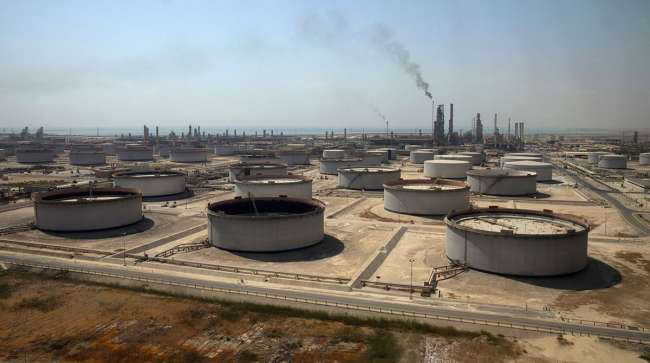Associated Press
Saudi Arabia, Russia Plan to Extend Oil Cut Through Year-End

[Stay on top of transportation news: Get TTNews in your inbox.]
DUBAI, United Arab Emirates — Saudi Arabia and Russia agreed Sept. 5 to extend their voluntary oil production cuts through the end of this year, trimming 1.3 million barrels of crude out of the global market and boosting energy prices.
The dual announcements from Riyadh and Moscow pushed benchmark Brent crude above $90 a barrel in trading the afternoon of Sept. 5, a price unseen in the market since last November.
The countries’ moves likely will increase the cost for motorists filling up at the pump and put new pressure on Saudi Arabia’s relationship with the United States. President Joe Biden last year warned the kingdom there would be unspecified “consequences” for partnering with Russia on cuts as Moscow wages war on Ukraine.
Saudi Arabia’s announcement, carried by the state-run Saudi Press Agency, said the country still would monitor the market and could take further action if necessary.

Transport Topics' Seth Clevenger, Michael Freeze and Mike Senatore dissect the new Top 100 list of the largest private carriers, including how fleets are adapting to this softened market. Tune in above or by going to RoadSigns.ttnews.com.
“This additional voluntary cut comes to reinforce the precautionary efforts made by OPEC+ countries with the aim of supporting the stability and balance of oil markets,” the Saudi Press Agency report said, citing an unnamed Energy Ministry official.
Russian news agency Tass quoted Alexander Novak, Russia’s deputy prime minister and former energy minister, as saying Moscow would continue its 300,000-barrel-a-day cut.
The decision “is aimed at strengthening the precautionary measures taken by OPEC+ countries in order to maintain stability and balance of oil markets,” Novak said.
Benchmark Brent crude traded Sept. 5 at $90 a barrel immediately after the announcement. Brent had largely hovered between $75 and $85 a barrel since last October.
The Saudi reduction, which began in July, comes as the other OPEC+ producers have agreed to extend earlier production cuts through next year.
A series of production cuts over the past year has failed to substantially boost prices amid weakened demand from China and tighter monetary policy aimed at combating inflation.
Want more news? Listen to today's daily briefing above or go here for more info
The Saudis are particularly keen to boost oil prices in order to fund Vision 2030, an ambitious plan to overhaul the kingdom’s economy, reduce its dependence on oil and to create jobs for a young population.
The plan includes several massive infrastructure projects, including the construction of a futuristic $500 billion city called Neom.
Higher prices would also help Russian President Vladimir Putin fund his war on Ukraine. Western countries have used a price cap to try to cut into Moscow’s revenues.
Western sanctions mean Moscow is forced to sell its oil at a discount to countries like China and India.




